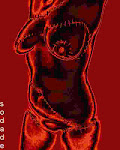All we are saying
just give peace a change
Imagine...
🍉🍉🍉
A history of the Palestinian watermelon
The
use of the watermelon as a Palestinian symbol is not new. It first
emerged after the Six-Day War in 1967, when Israel seized control of the
West Bank and Gaza, and annexed East Jerusalem. At the time, the
Israeli government made public displays of the Palestinian flag a
criminal offense in Gaza and the West Bank.
To circumvent the ban,
Palestinians began using the watermelon because, when cut open, the
fruit bears the national colors of the Palestinian flag—red, black,
white, and green.
[…]
The watermelon symbol today
In
January, Israel’s National Security Minister Itamar Ben-Gvir gave
police the power to confiscate Palestinian flags. This was later
followed by a June vote on a bill to ban people from displaying the flag
at state-funded institutions, including universities. (The bill passed
preliminary approval but the government later collapsed.)
In June,
Zazim, an Arab-Israeli community organization, launched a campaign to
protest against the ensuing arrests and confiscation of flags. Images of
watermelons were plastered on to 16 taxis operating in Tel Aviv, with
the accompanying text reading, “This is not a Palestinian flag.”
“Our
message to the government is clear: we will always find a way to
circumvent any absurd ban and we will not stop fighting for freedom of
expression and democracy,” said Zazim director Raluca Ganea.
Amal
Saad, a Palestinian from Haifa who worked on the Zazim campaign, told Al
Jazeera they had a clear message: “If you want to stop us, we’ll find
another way to express ourselves.”
full article:
https://time.com/6326312/watermelon-palestinian-symbol-solidarity/









